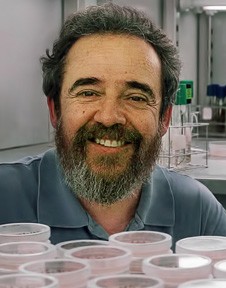The Congress will be organized by the Instituto Valenciano de Investigaciones Agrarias (IVIA), with the collaboration of several institutions such as the Polithecnical University of Valencia (UPV), the University Jaime I from Castellón, the Institute of Agrochemestry and Food Technology (IATA-CSIC), the Fundación de la Comunidad Valenciana para la Investigación Agroalimentaria (Fundación “AGROALIMED”) and the active involvement of the citrus private industry.
Citrus have a long history in Spain. Citron was introduced in the V century, sour orange and lemons in the X century, pummelos in the XIII century, sweet oranges in the XV century and mandarins in the XIX century. Today Spain has 330.000 hectares of citrus, with a production of 6.3 million tons, with sweet orange representing 48%, mandarins 35% and lemons 16%. Spain is the first exporting country of fresh fruit, with more than 50% of the production being commercialized abroad. Citrus plantings are located along the Mediterranean coast in the provinces of Tarragona, Castellón, Valencia, Murcia, Almeria and Málaga, in the Guadalquivir river valley in the provinces of Córdoba and Sevilla and in the Atlantic coast in the province of Huelva. One important characteristic of the Spanish citrus industry is that it has been completely renewed in the last 30 years with healthy certified nursery trees originally recovered by shoot-tip grafting in vitro, and today graft and vector transmitted diseases do not pose significant problems.
Business and trade coexist with leisure and culture. Valencia is a city that never sleeps, with an extensive cultural lineup star-studded at any time of year with festivals, concerts, shows and exhibitions. Thanks to the excellent climate and the attractive cityscape, outdoors activities include enjoying the cafe terraces, parks and gardens, strolling complacently by the seaside and through the city,combining both urban life and outings to the surrounding nature areas.
When visitors arrive in Valencia, the city seems to be decked out to greet them. Discovering Valencia is a true pleasure for the senses. And reaching the city from any part of the globe is easy and comfortable, thanks to a modern network of links with world business centres, including air communications, high-speed trains and freeways. We are sure that participants will enjoy the experience of Valencia.
The congress will have plenary and ordinary sessions, workshops and poster display, addressing every issue and specialization of citrus and will be an excellent forum to establish new links and collaborations among participants. In addition, those attending pre, post and mid Congress tours will have the opportunity to see both the traditional and the modern Spanish citrus industries, including nursery operations, cultural practices, varieties, packing houses, juice factories, and research institutes.We are looking forward to meet you in Valencia where you will be warmly received.
Luis Navarro
President of the International Society of Citriculture
Chairman of the Organizing Committee of the ICC 2012


